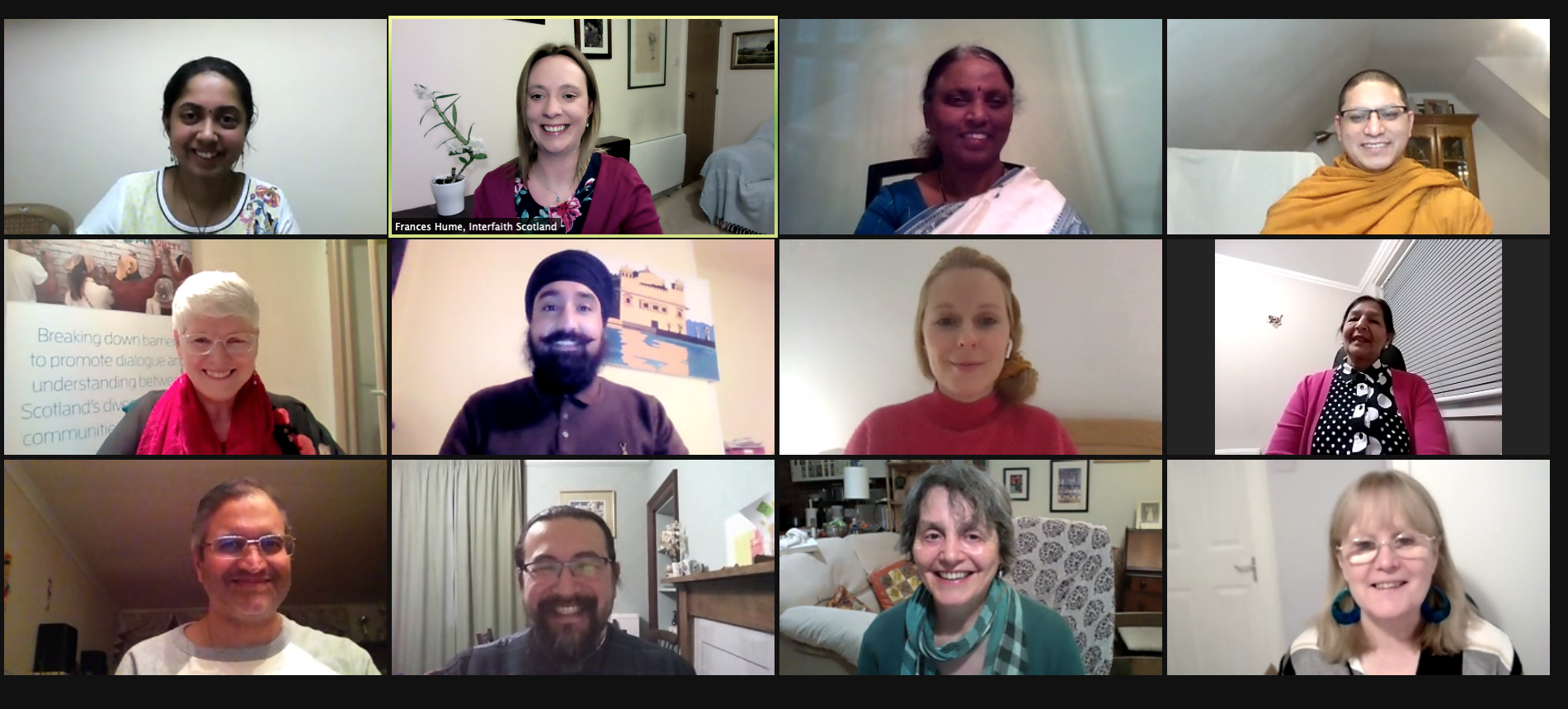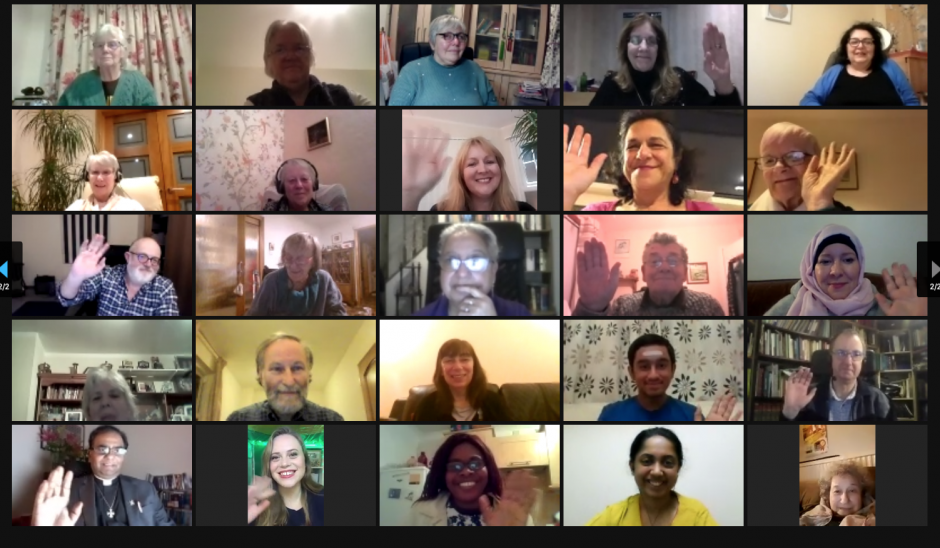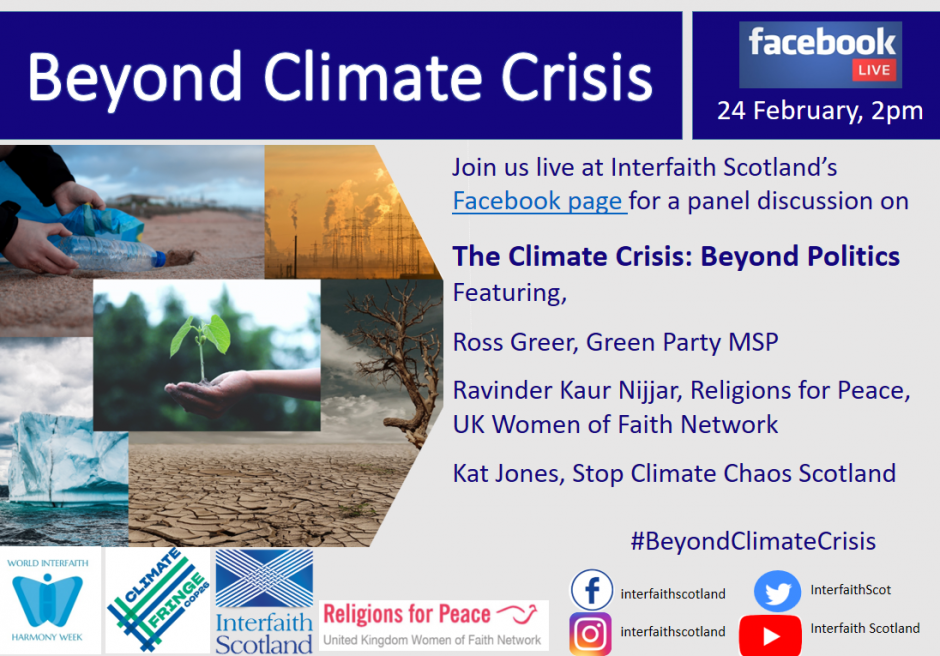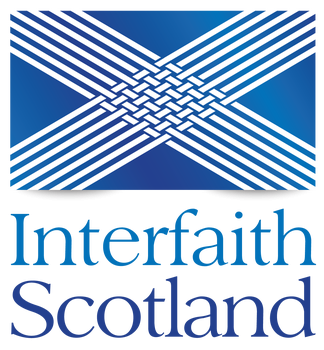World Interfaith Harmony Week 2021

Faith Communities Serving Others Together
One of the most powerful ways to promote harmony and understanding is to ‘serve’ others together and during the global pandemic local faith communities, interfaith groups and community organisations across Scotland were supported by Interfaith Scotland to serve their communities during the COVID-19 pandemic. For World Interfaith Harmony Week 2021 we brought together many of the faith communities who worked so hard to support others in an online celebration of community service showcasing their wonderful work. We heard from eight inspiring projects – six faith communities, a local interfaith group and a local community project.
Our keynote speaker was Charandeep Singh, the co-founder of the charity Sikhs in Scotland which set up the Sikh Food Bank during the pandemic providing over 100,000 meals to those in need. The Sikh Food Bank received the Prime Minister’s Points of Light Award and the Pride of Scotland Award and Charandeep was named in the Queen’s New Year honours list for services to charity. Charandeep shared that all aspects of the food bank project were multifaith and multicultural, from the donors, to the volunteers and service users. As the project expanded Charandeep was delighted that a church in Queens Park in Glasgow Church offered to take in and administer donated goods to the food bank, a truly interfaith effort in the city!
We then heard from several other faith-based community projects. Fiona Frank spoke on behalf of the Scottish Council of Jewish Communities (SCoJeC) which purchased a Zoom account which was able to hold meetings and events for large groups, including a Klezmer and Yiddish Song concert for which over 630 people registered. They have also been able to share the Zoom account with many other communal organisations for events and meetings.
Venerable Ajahn Sujan, the Abbot teacher at the Varapunya Meditation Centre in Aberdeen spoke about moving its activities online to reach out ‘live’ by broadcasting daily talks, chanting and meditation which have helped Buddhists and non-Buddhists alike, locally, regionally, nationally and even internationally. Many have said that they are so grateful for the positive impact on their mental health and spiritual wellbeing, including many who have never been to the Centre! The Centre also secured a delivery of 400 face coverings from overseas which were offered widely for free across all the communities we have engaged with both at the Centre and online.
Rev Tembu Rongon, the priest at Holy Trinity Scottish Episcopal in Elgin shared ways in which he has been able to help isolated members of his congregation feel included in the life of the parish. This included livestreaming church services and holding online weekly prayer group meetings and the church youth group on Zoom. For those without access to technology, leaflets with all the readings for the services and church notices were posted out. All of this is helping keep the congregation and wider community connected and involved when many were isolated, living alone and suffering from loneliness and anxiety.
Srihari Vallabhajousula and Subbulakshmi Jagannathan from the Hindu Temple of Scotland in Rutherglen spoke about supporting destitute Indian students with food parcels for a three month period at the start of the pandemic. Our Muslim speaker was unable to attend but we heard about the work of the Al-Khair Foundation, a Muslim charity that prepared cooked meals for the homeless, those shielding and unable to go out and those who had lost their jobs due to the pandemic and were struggling to feed their families.
Local Interfaith Groups were also instrumental in supporting their local communities in Skye and Lochalsh, Aberdeen, Fife, Edinburgh, Glasgow and East Renfrewshire. At the event we heard from Nila Joshi from Edinburgh Interfaith Women’s Group which supported the elderly, lonely, vulnerable and those with health issues during the pandemic. This assistance included providing basic food provisions, help with hospital appointments, picking up prescriptions and delivering medications to those isolated at home. The group also sewed 100 masks for Edinburgh Sick children hospital for visitors, parents and admin staff.
Many community organisations helped people at the grassroots level throughout the pandemic. One of these was Bridging the Gap, an organisation set up by the Church of Scotland and the Roman Catholic Church, to support refugees and combat sectarianism between Protestant and Catholic young people in Glasgow. Tricia McConalogue, the Director of Bridging the Gap, spoke to us about providing practical support such as food and nappies to families that were struggling financially; online activities to connect people together such as cookery classes; and an art project called ‘Pigeon of Hope’ where origami pigeons were sent in the post with a stamped addressed postcard to send back to the project on which to fill in, “When we get back together we hope we can…”
After we had heard from the speakers, participants were divided into multifaith dialogue rooms to share with one another on, “What does your faith community have to say about serving others?” We then returned to the main room to hear from those who were helped by the projects outlined in the programme who shared the impact that the projects had on their lives.
All agreed that it was a truly inspirational evening and a short film giving a flavour of the talks can be viewed on Interfaith Scotland’s YouTube channel.
Interfaith Buddies: Connecting Through Conversation

As Scotland endures another COVID-19 lockdown many people are experiencing ‘lockdown loneliness’. For World Interfaith Harmony Week 2021, Interfaith Scotland hosted an Interfaith Buddies event to bring people together from diverse faith traditions, to build close bonds of friendship, harmony and understanding. After an introduction to World Interfaith Harmony Week by Dr Maureen Sier, Director of Interfaith Scotland, two speakers gave a presentation on the theme of ‘Connecting through Conversation’.
Our first speaker was Trishna Singh, the founder and Director of the Sikh Family Support Charity, Sikh Sanjog, and Punjabi Junction, a café that is the first Sikh women’s social enterprise in Scotland. At the start of lockdown, Sikh Sanjog acted fast to move its services online with weekly online well-being sessions and youth work sessions, culturally specific food parcels, online arts and craft sessions and an emergency befriending service with over 500 calls made to check in on the health and wellbeing of group members, young people and the elderly. Punjabi Junction also provided over 600 free hot meals to homeless people in Leith.
Trishna said, “As Scottish Sikhs we have much in common with our fellow Scots but it is only through conversations that barriers are broken and friendships are created. We see an increase in the number if people who are simply longing for more opportunities to make real one to one face to face connections with their fellow human beings be they from any race or culture. The staff at Sikh Sanjog have tried to reach out to as many people of different communities and backgrounds as possible.”
Our second speaker was Anish Subramaniam, a school pupil from Aberdeen who shared the fascinating research that he had conducted with over 120 people from different backgrounds to find out more about their mental, emotional and spiritual health during the pandemic and ways in which people were connecting with one another, with online activities and showing acts of compassion in supporting others. A copy of the research is available on request from Interfaith Scotland.
Participants were then partnered with a person from a tradition other than their own and had the opportunity to explore what their faith tradition had to say about the World Interfaith Harmony Week themes of Love of God, Love of the good and Love of neighbour. After the talks we heard very moving accounts from some of the buddy pairs who reflected upon their experiences. Rev Peter Gill, a Church of Scotland minister from Pakistan and founder of Renfrewshire Interfaith Group, was paired with Linsay Taylor, a Scottish Muslim and the current Chair of Interfaith Scotland. Peter and Linsay were moved and inspired by all that they shared in common on their faith journey.
It is envisaged that this event will support people during the global pandemic and beyond by creating opportunities for individuals from the grassroots of Scottish society to build a deep and meaningful friendship with someone from a faith tradition other than their own and that these friendships will last well beyond the pandemic and the Interfaith Buddies scheme will be built upon in the years to come.
Beyond Climate Crisis Series launched for World Interfaith Harmony Week 2021
The Beyond Climate Crisis series was inaugurated during World Interfaith Harmony Week with ‘The Climate Crisis: Beyond Politics’ panel discussion featuring distinguished guests, Ross Greer, Green MSP, Kat Jones, Stop Climate Chaos Scotland and Ravinder Kaur Nijjar, advisor to Sikhs in Scotland and Chair of Religions for Peace, UK Women of Faith Network. The panel offered both an interfaith perspective along with key perspectives from the world of politics (with a small p). Go to Interfaith Scotland Facebook page to see the live engagement that took place.
This first panel included Christian and Sikh panellists and future panelists will include Muslims, Jews, Hindus, Buddhists and others. The Beyond Series will include The Climate Crisis: Beyond Religion; The Climate Crisis: Beyond Economics the Climate Crisis: Beyond Science (along with many other ‘beyonds’). It is hoped that this interfaith series will highlight that the climate crisis is beyond anything humanity has faced but that together we can make a difference.

